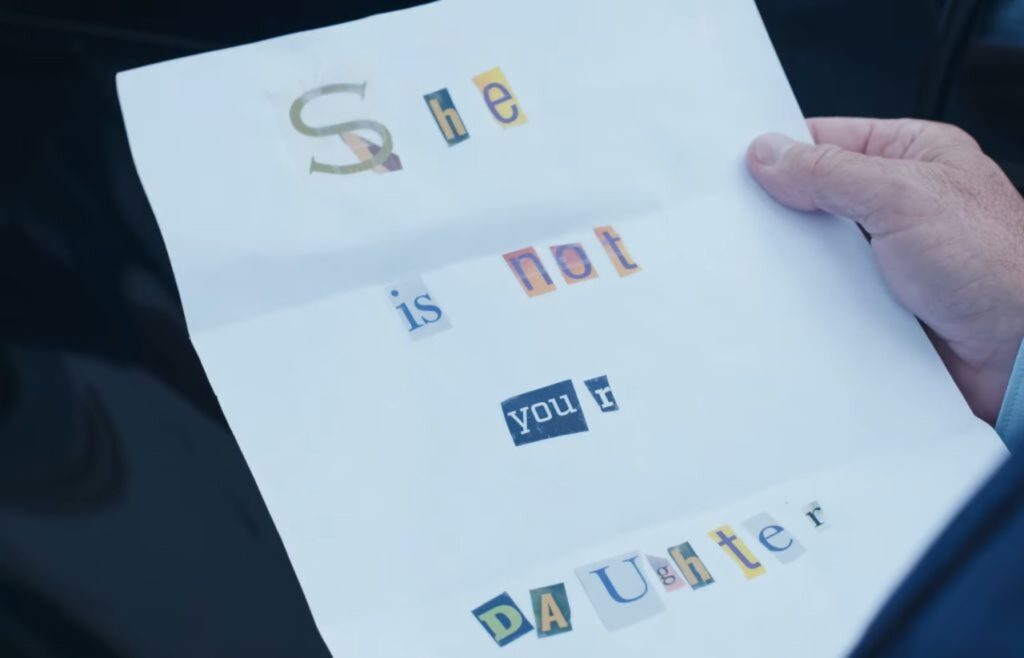
Not Our Daughters: Protecting Future Generations from Harm
The phrase “Not Our Daughters” encapsulates a powerful sentiment: a collective commitment to safeguarding the well-being and future of young women. It speaks to a desire to shield them from various forms of harm, including violence, discrimination, exploitation, and systemic inequalities. This article will explore the multifaceted dimensions of this commitment, examining the challenges faced by young women globally and the strategies employed to ensure their safety, empowerment, and equal opportunities. When we say “Not Our Daughters,” we are invoking a promise to create a world where every girl can thrive, free from fear and injustice. The urgency of the “Not Our Daughters” movement stems from the persistent realities of gender-based violence and inequality.
Understanding the Challenges
Young women and girls face a myriad of challenges that threaten their well-being and limit their potential. These challenges vary across cultures and socioeconomic contexts but often include:
- Gender-Based Violence: This encompasses physical, sexual, and emotional abuse, as well as harmful traditional practices such as female genital mutilation (FGM) and child marriage.
- Educational Disparities: In many regions, girls are less likely to attend school than boys, particularly at the secondary level. Factors contributing to this include poverty, cultural norms, and safety concerns.
- Economic Inequality: Young women often face discrimination in the workplace, earning less than their male counterparts for similar work and having fewer opportunities for advancement.
- Health Disparities: Access to reproductive healthcare and information remains a significant challenge for many young women, leading to unintended pregnancies and increased risk of maternal mortality.
- Online Harassment and Cyberbullying: The rise of social media has created new avenues for harassment and abuse, with young women disproportionately targeted.
Addressing these challenges requires a comprehensive approach that tackles both the immediate threats to young women’s safety and the underlying systemic inequalities that perpetuate them. The idea of “Not Our Daughters” compels us to actively work towards solutions, ensuring these challenges do not define the lives of future generations.
Strategies for Protection and Empowerment
Numerous strategies are being implemented globally to protect and empower young women. These strategies can be broadly categorized as follows:
Legal and Policy Reforms
Strengthening legal frameworks and enacting policies that protect women’s rights are crucial steps. This includes laws against gender-based violence, equal pay legislation, and policies that promote girls’ education. Enforcement of these laws is equally important. For example, countries that have criminalized FGM and child marriage have seen a decrease in these practices, although challenges remain in ensuring full compliance. The sentiment behind “Not Our Daughters” must translate into concrete legal protections.
Education and Awareness Campaigns
Education is a powerful tool for empowerment. Providing girls with access to quality education equips them with the knowledge and skills they need to succeed. Awareness campaigns play a vital role in challenging harmful social norms and promoting gender equality. These campaigns can target communities, schools, and workplaces, using various media platforms to reach a wide audience. The message of “Not Our Daughters” can be amplified through these educational initiatives.
Community-Based Interventions
Community-based programs are essential for addressing the root causes of gender inequality and violence. These programs often involve working with local leaders, families, and community members to change attitudes and behaviors. Examples include programs that promote girls’ education, provide economic opportunities for women, and offer support services for survivors of violence. These interventions are most effective when they are culturally sensitive and tailored to the specific needs of the community. Saying “Not Our Daughters” means actively participating in these community efforts.
Economic Empowerment Initiatives
Economic empowerment is critical for women’s autonomy and independence. Providing young women with access to vocational training, entrepreneurship opportunities, and financial resources can help them break the cycle of poverty and dependence. Microfinance programs, for example, have proven to be effective in empowering women in developing countries. When we say “Not Our Daughters,” we are advocating for their financial independence and security.
Healthcare Access
Ensuring that young women have access to comprehensive healthcare services, including reproductive healthcare, is essential for their well-being. This includes providing access to contraception, prenatal care, and safe abortion services. Addressing the social determinants of health, such as poverty and discrimination, is also crucial. The health and well-being of “Not Our Daughters” depend on accessible and quality healthcare.
Technology and Innovation
Technology can be a powerful tool for empowering young women. Social media platforms can be used to raise awareness about gender equality and connect women with resources and support. Mobile technologies can provide access to education, healthcare, and financial services in remote areas. However, it is also important to address the risks of online harassment and cyberbullying. Safeguarding “Not Our Daughters” in the digital age is a pressing concern. [See also: Online Safety for Young Women]
The Role of Men and Boys
Engaging men and boys in the effort to promote gender equality is essential. Challenging traditional notions of masculinity and promoting positive male role models can help to create a more equitable society. Men and boys can play a crucial role in preventing gender-based violence and supporting women’s empowerment. The phrase “Not Our Daughters” should resonate with men and boys as a call to action.
Programs that involve men and boys in gender equality initiatives have shown promising results. These programs often focus on promoting respectful relationships, challenging harmful stereotypes, and encouraging men to be allies in the fight against gender inequality. By working together, men and women can create a society where all individuals are valued and respected.
The Importance of Collaboration
Addressing the challenges faced by young women requires collaboration among governments, civil society organizations, the private sector, and individuals. Governments have a responsibility to enact and enforce laws that protect women’s rights and promote gender equality. Civil society organizations play a vital role in advocating for women’s rights, providing support services, and implementing community-based programs. The private sector can contribute by promoting gender equality in the workplace and supporting initiatives that empower women economically. Individuals can make a difference by challenging harmful stereotypes, supporting women-owned businesses, and speaking out against gender-based violence. The collective effort behind “Not Our Daughters” is what will ultimately drive change. [See also: Collaborating for Gender Equality]
The Global Perspective
The challenges faced by young women are not confined to any one region or country. Gender inequality and violence are global issues that require a coordinated international response. The United Nations Sustainable Development Goals (SDGs) include specific targets related to gender equality and women’s empowerment. Achieving these goals requires a concerted effort from all countries. Supporting “Not Our Daughters” is a global imperative.
International organizations, such as UN Women and the World Bank, play a crucial role in promoting gender equality and supporting women’s empowerment around the world. These organizations provide technical assistance, funding, and advocacy to help countries achieve their gender equality goals. They also monitor progress and hold governments accountable for their commitments. The global movement behind “Not Our Daughters” is gaining momentum, driving policy changes and promoting positive outcomes for young women worldwide.
The Power of Storytelling
Sharing stories of young women who have overcome adversity and achieved success can inspire others and promote positive change. These stories can be powerful tools for challenging stereotypes and demonstrating the potential of young women. Media outlets, social media platforms, and community organizations can all play a role in amplifying these stories. The voices of “Not Our Daughters” need to be heard and celebrated. [See also: Inspiring Stories of Young Women]
Documentaries, films, and books that highlight the challenges and triumphs of young women can also raise awareness and inspire action. These narratives can help to humanize the issues and make them more relatable to a wider audience. By sharing these stories, we can create a more empathetic and understanding society.
Moving Forward: A Call to Action
The phrase “Not Our Daughters” is more than just a slogan; it is a call to action. It is a reminder that we all have a responsibility to protect and empower young women. This requires a commitment to challenging harmful social norms, advocating for policy changes, and supporting initiatives that promote gender equality. It also requires a willingness to listen to the voices of young women and to amplify their perspectives. The future of “Not Our Daughters” depends on our collective action.
As individuals, we can make a difference by challenging sexist jokes, supporting women-owned businesses, and speaking out against gender-based violence. We can also donate to organizations that are working to empower women and girls. As communities, we can create safe spaces for young women to learn, grow, and thrive. As a society, we can strive to create a world where all individuals are valued and respected, regardless of their gender. Let the spirit of “Not Our Daughters” guide our actions and inspire us to create a better future for all.
When we say “Not Our Daughters,” we are committing to a future where every girl has the opportunity to reach her full potential, free from fear and discrimination. It’s a promise we must uphold, for the sake of not just our daughters, but for the betterment of society as a whole. By investing in the well-being and empowerment of young women, we are investing in a more just, equitable, and prosperous world for everyone. Saying “Not Our Daughters” is saying yes to a brighter future for all.

